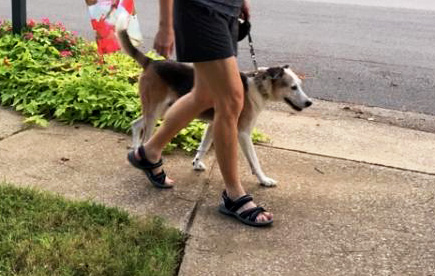Staying Healthy During the Holidays
Surviving the holidays can be challenging for everyone, but the season affords specific pitfalls—and opportunities—for cancer patients who are mindful of staying healthy throughout the season and beyond.
If you’re a cancer patient—or anyone who wants a healthier holiday and less stressful new year—try these tips:
1. Are there holiday events or traditions you could live without? Can you gracefully bow out of gatherings or obligations you no longer enjoy? Do you really need to bake all those cookies? Can this be the year you send a Christmas email or a link to your Facebook page instead of all those cards?
2. Remember people that are important to you. Schedule “together time” with those you most want to see. By scheduling ahead you can make sure you make time for what matters most to you. Our bodies and brains respond positively in lots of ways to time spent connecting with those we are close to; consider this important for your health during the holidays.
3. Keep moving. Physical activity is the clearest step you can take to benefit your health during the holidays and any time of year. It is certain to make you feel good and help your body and brain to function better. It can even fight fatigue! Make opportunities to walk or take stairs for at least 10 minutes at a time. Always consult with your doctor before beginning an exercise routine.
My dog Harry LIVES for daily walks!
4. Practice healthy nutrition. Know what foods help you feel and do your best, then focus more on giving your body what it needs (such as fruits and vegetables) and less on trying to avoid certain foods. Eat sweets in moderation and make sure you also get protein, fiber and healthful fats. Eat healthy food before going to a party so it is easier to indulge in moderation. Some healthy snacks to keep on hand include: nuts, dried fruit, yogurt, cottage cheese, microwave popcorn, high fiber cereal.
5. Prevent infections. Handshakes, kisses and hugs are great ways to spread infections like colds, flus and gastroenteritis. Prevent them by washing your hands often and keeping your hands away from your eyes, nose and mouth. Also, remind people who are coughing or sneezing to cover their mouths with their elbows. Always keep a small bottle of antibacterial gel on hand—even better, leave a big bottle out for everyone to use—to protect yourself from the many viruses you’re sure to come into contact with over the holidays. Try to keep your distance from people who present cold or other infectious symptoms. It may sound simple enough, but it’s not always easy to do at gatherings and parties. Finally, if you are feeling sick, stay in bed. It’s better to miss a party than to infect all your relatives!
6. Know how alcohol affects your health. If you drink, do so in moderation (one drink a day for women and two for men). Before a social event, plan ahead what and how much you’ll drink. Alternate between alcoholic and non-alcoholic drinks, such as sparkling water with lime, to help pace yourself and stay hydrated. If it’s hard to say no once you’ve started drinking, then plan to stick with non-alcoholic drinks. Staying well hydrated is another way to help fight fatigue!
Remember to keep well-hydrated, even in the cooler months!
7. Relax your body and mind. When you are more relaxed you sometimes get more done—and feel better doing it. When you feel wound up or overwhelmed, take five minutes to breathe deeply and scan your body from head to toe. Close your eyes and breathe in through your nose to a count of four, hold your breath for a count of two, breathe out through your mouth for a count of four, and repeat. Check your forehead, jaw and tongue for tightness, relax; then check your neck and shoulders, stretch and move them to find a comfortable position, then continue with your arms, chest, abdomen and legs. You can even breathe and relax your body while driving—just don’t close your eyes!



